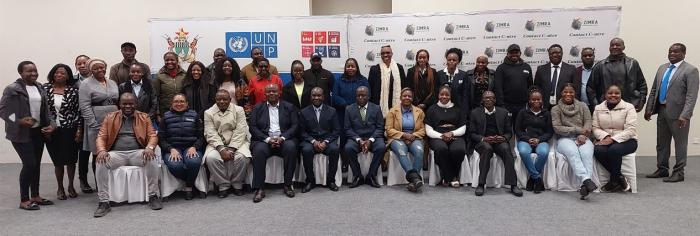The Zimbabwe Revenue Authority (ZIMRA), in partnership with the United Nations Development Programme (UNDP), recently held a three-day tax education training in Masvingo.
The training aimed to equip journalists with the skills necessary to report effectively on tax and customs strategic issues, as well as their impact on the economic and social development of the nation.
"I'm now better equipped to report on tax-related issues and connect the dots between taxation and sustainable development," said Portia Muzorava, a young female journalist from MSU Campus Radio in the Midlands province.
She expressed increased confidence in her ability to create stories that will have a significant impact on her audience. Another participant, Beatific Gumbwanda, a freelancer based in Chiredzi, described the training as an "eye-opener" that helped fill the gaps in their understanding of ZIMRA's functions.
In his opening remarks, Batsirai Chadzingwa, the Commissioner of Customs and Excise who was standing in for the Commissioner General, thanked the journalists for their participation.
He expressed his belief that the training would help the media appreciate ZIMRA's role and its impact on the nation.
The training not only focused on ZIMRA's operations, but also highlighted the organisation's alignment with the Sustainable Development Goals (SDGs). This holistic approach underscored the vital role that taxation plays in supporting sustainable development initiatives.
Melusi Tshuma, the national coordinator for Tax for SDGs with UNDP, explained the importance of taxes in the development of a nation. "We need to emulate the first world where taxes are religiously paid to their governments," he emphasized.
The training, which was attended by journalists from the southern region, including Masvingo, Chiredzi, Zvishavane, and Beitbridge, also included a tour of the Beitbridge Border Post.
During the tour, the journalists were introduced to the state-of-the-art scanning technology and drone surveillance system used to detect undeclared contraband and drugs.
The drones currently in use cover a 10km radius from the border post, with plans underway to expand the coverage to a 100km radius.
The comprehensive training and the exposure to ZIMRA's operations have undoubtedly equipped the journalists from the southern region with a deeper understanding of the organisation's crucial role in revenue collection, border management, and its contribution to Zimbabwe's sustainable development.

